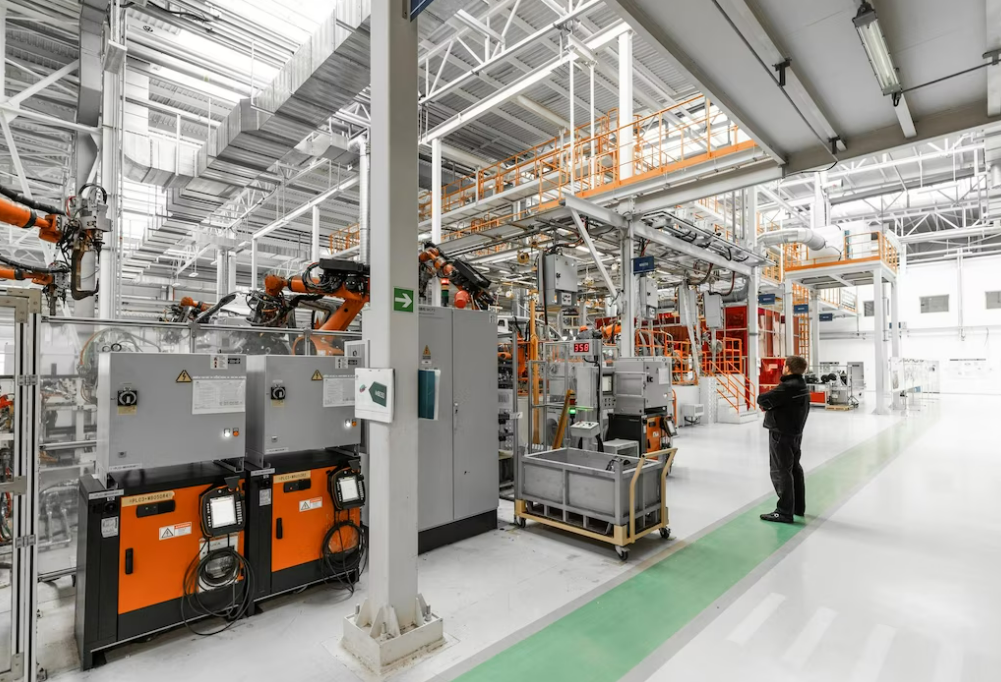Many people are confused about what the terms ‘production’ and ‘operation’ mean.
‘Production’ means producing goods and services for the end user’s consumption. It is about processing raw materials to the end result. It involves the design of products, selection of suppliers and resources, and scheduling of activities to turn a concept into reality.
‘Operation’ in the business world is quite different than the ‘operation’ that’s done in a hospital. In the world of business, ‘Operation’ is all about helping the ‘Production’ centre or department in producing a quality good or product, preferably flawless. It includes everything from staffing, organizing, coordination, cooperation, managing and controlling the resources (including human resources).
MBA in Production and Operation Management at SMS Varanasi covers all the above-mentioned topics and more to prepare graduates ready to enter the world of business with all the knowledge and skills they need to help the organization function smoothly.
Here are some of the subjects covered in MBA in Production and Operation Management to help students understand the various methods, processes, and information they need to help businesses operate efficiently:
Operations Strategy
There is a strategy to everything. You need a strategy to fulfill the objectives and deliver results. Usually, it is the manager of each operation, who is responsible for directing, managing, organizing, and strengthening the process.

Various types of Operation Strategies Production and Operation Managers often use are :
1. Make to Order: It involves the production of custom-made goods or services based on the customer’s specifications.
2. Make to Stock: It involves keeping a stock of goods or services in anticipation and ready to be served whenever needed.
3. Assemble to Order: It involves assembling a set of parts and components as per the customer’s requirements.
4. Project-Oriented Strategy: It involves the planning and execution of a single project or several related projects.
5. Continuous Flow Manufacturing (CFM): It is about the production of goods or services in the same sequence and manner over time.
6. Just-in-Time Manufacturing (JIT): This is a production strategy that aims to produce products only when needed.
Different types of Operation Processes covered in MBA in Production & Operation Management Program are:
1. Job Process: It involves producing goods or services for a single customer.
2. Batch Process: It is about the production of goods or services in batches for multiple customers.
3. Line Process: It is about the production of goods or services in a continuous flow manner.
4. Mass Customization Process: It is about producing goods or services for a large number of customers, but with each one’s specifications in mind.
5. Repetitive Processing: It is about producing goods and services in a repetitive fashion.
6. Project-oriented Process: It is about producing goods or services for a specific project.
This knowledge comes in handy when it comes to Production & Operation Management. With this knowledge, you can help increase the efficiency of a business by minimizing cost and maximizing output.
Operations Research
Operations research is a subject that helps in decision-making.
Research is a very interesting subject overall. And as the era is becoming more of a customer satisfaction kind of a thing, the field of research is opening wide for students. Decision-making and new ideas are always welcomed when it comes to research.

It is also a very important subject to Operations, as businesses need to find reasons and ideas that can shoot them up the market in a second. Through the help of research, many objectives and confusions can be cleared out. It is research that helps the organization go to the next level.
Operations Research covers many topics, such as:
1. Calculus: It is a branch of mathematics that deals with the study of change. In Operations Research, it is applied to the study of optimization, control and estimation.
2. Linear Programming: It helps in optimizing certain objectives, such as minimizing cost or maximizing profits under certain limitations. The knowledge of linear programming helps future managers to make better decisions.
3. Queuing Theory: It helps analyze the behaviour of customers when they have to wait for a service or product. You can use it to design efficient systems and minimize customer waiting time.
4. Simulation: It helps build computer models to simulate the behaviour of a real-world system, such as a production line or store. Simulation experts can help in the analysis of operations, production planning and scheduling.
5. Optimization Theory: It is about finding the best solution for a problem under certain conditions. It proves very useful to Operations Managers who want to find optimal solutions.
and more.
Modelling in Supply Chain Management
The supply chain of a corporation works on the following framework:
- Plan: First, a plan is generated. Without a plan, there is no objective, no motive, and no principles. So making a secured plan is the first rule in operation.
- Source: Source refers to from where the raw materials are being brought. In a study, the sources are about where the secondary data is being taken.
- Make: Production plays a major role in a business. The main process of production begins from here. It is about how the input is generated to process it into output.
- Delivery: Delivering the produced output to the end user determines the success of a chain. The model helps in understanding which delivery is suitable for the product and what needs to be done for making it successful.
- Return: Along with the delivery, return policies are also important. For example, if there’s a bad quality product delivered or something wrong happens while delivering, then how will it be handled? It can also be accepted as a feedback session so that a more improvised product be made for the next time.
Supply Chain Management modelling is about making decisions based on different factors related to suppliers and customers. A supplier sure knows which product is more feasible to the market and which one is not. Taking his or her suggestions at the time of decision-making can be really helpful and suggestive.
Production, Planning, and Control
As we discussed above, production plays a major role in converting the inputs into a wonderful output. The rest, planning and controlling are covered under the subject of operation. Without a plan, there is an absence of production – because without a defined agenda, it is impossible to produce something.

Planning and controlling are essential for the production process to run smoothly so that there is no wastage of resources or time in it. Both these aspects have different meanings and different roles – and yet, they are both related.
Planning is what is done from the beginning, which defines the objectives, principles, and mission. Controlling can be defined as making sure that the whole operation is moving smoothly just as it was planned.
With the knowledge of production, planning and control, a future Operation Manager will be able to manage and operate a business in the most efficient way. They will also be able to assess whether the business is running as per the plan or not – and if it’s not, then what should be done for betterment.
Technology, Innovation, and New Product Management
Technology is changing every day. Businesses and their employees have to cope with modernization or else, they fail.
When you are developing a new product, both technology and innovation play important roles. For example, the changes from the iPhone 5s to the iPhone X have been phenomenal.
Innovation is about thinking differently, while technology is the way of making it happen. In the end, a corporation has to make sure that its products satisfy the end user and spark a major boom in their demand.
Just like one person can bring a change, one product can save a company from drowning. It requires 100% precaution, effort, innovation, guidance, objectives, and the correct use of technology to come up with such a product though.
Conclusion
MBA in Production & Operation Management enables you to help businesses operate well by using the knowledge of production, planning and control, technology, innovation and new product management.
It prepares a manager for managing resources and making sure the operations are running smoothly as per the plan. If you dream of becoming a COO (Chief Operating Officer) of a company, then this course will take you one step closer.





